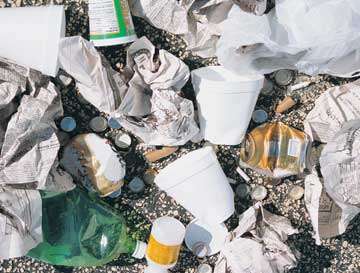International Coastal Cleanup is Sept. 16 on dozens of Washington beaches
OLYMPIA – Washington State Parks and its partners with Washington CoastSavers invite the public to join volunteers from all over the planet for the 2017 International Coastal Cleanup.
In Washington state, volunteers are needed to help clean up dozens of beaches on Saturday, Sept. 16, along Washington’s outer coast, the Olympic Peninsula and the Strait of Juan de Fuca. Meeting times at beaches vary; interested participants should sign up to find cleanup locations and times at www.coastsavers.org.
Washington CoastSavers is an alliance of partners and volunteers dedicated to keeping the state’s beaches free of marine debris. CoastSavers’ founding members include representatives from Lions Club International; Discover Your Northwest; Surfrider Foundation; Grass Roots Garbage Gang; Olympic Coast National Marine Sanctuary; Olympic National Park and Washington State Parks, which manages the Seashore Conservation Area. Since 2007, twice-yearly cleanups have removed tens of tons of beach trash—the Washington Coast Cleanup every Earth Day weekend in April and the International Coastal Cleanup every third Saturday in September.
“Washington State Parks is pleased to be a part of this important—and effective—cleanup event,” said Don Hoch, State Parks director. “Washington’s beaches benefit from the many different organizations and volunteers working together to make our beaches safe and clean for all to enjoy.”
“The positive impact of this cleanup event is immediately visible and impressive,” said Olympic National Park Acting Superintendent Lee Taylor. “Olympic National Park is proud to support the work of CoastSavers volunteers.”
The International Coastal Cleanup (ICC) is a global effort organized by the Ocean Conservancy, with coordinators in approximately 100 countries and 36 states. Washington CoastSavers serves as the coordinator for Washington state. Last year, nearly 800,000 volunteers picked up more than 18 million pounds of trash from shorelines worldwide.
Trash collected at this year’s ICC events will be counted and included in an annual index of global marine debris, to be released in 2018. The data gathered at ICC events will provide information to inform policy solutions and identify areas where preventive solutions could make significant improvements.
ICC events raise awareness about the pervasive issue of marine debris and bring together people and organizations who care about the health of earth’s oceans and waterways.
“This is an opportunity to take part in a global effort to get trash off our treasured beaches, including many county parks, state parks and Olympic National Park,” said Jon Schmidt, coordinator for Washington CoastSavers.
The following state parks are participating in the International Coastal Cleanup:
Cape Disappointment State Park
Ocean City State Park
Pacific Beach State Park
Twin Harbors State Park
Garbage bags will be provided at each site. For specific meeting times and other details about each of the park cleanups, visit the State Parks calendar page at: http://parks.state.wa.us/calendar.aspx?view=list&year=2017&month=9&day=16
For details about all of the cleanups on Washington beaches, visit: http://www.coastsavers.org/index.php/icc-cleanup/
Seashore Conservation Area
Washington State Parks manages the Washington State Seashore Conservation Area (SCA), which extends along most of Washington’s outer coastline, excluding Tribal Reservation and National Park lands. The SCA includes the areas between Cape Disappointment and Leadbetter Point; between Toke Point and the South jetty on Point Chehalis; and between Damon Point and Moclips; and occupying the area between the line of ordinary high tide and the line of extreme low tide.
About Washington State Parks:
The Washington State Parks and Recreation Commission manages more than 100 state parks and properties totaling approximately 120,000 acres. The Commission provides a variety of recreation opportunities for citizens and provides stewardship protection for a diverse array of natural, cultural and historic resources. State Parks’ statewide programs include long-distance trails, boating safety and winter recreation.
– Washington State Parks









